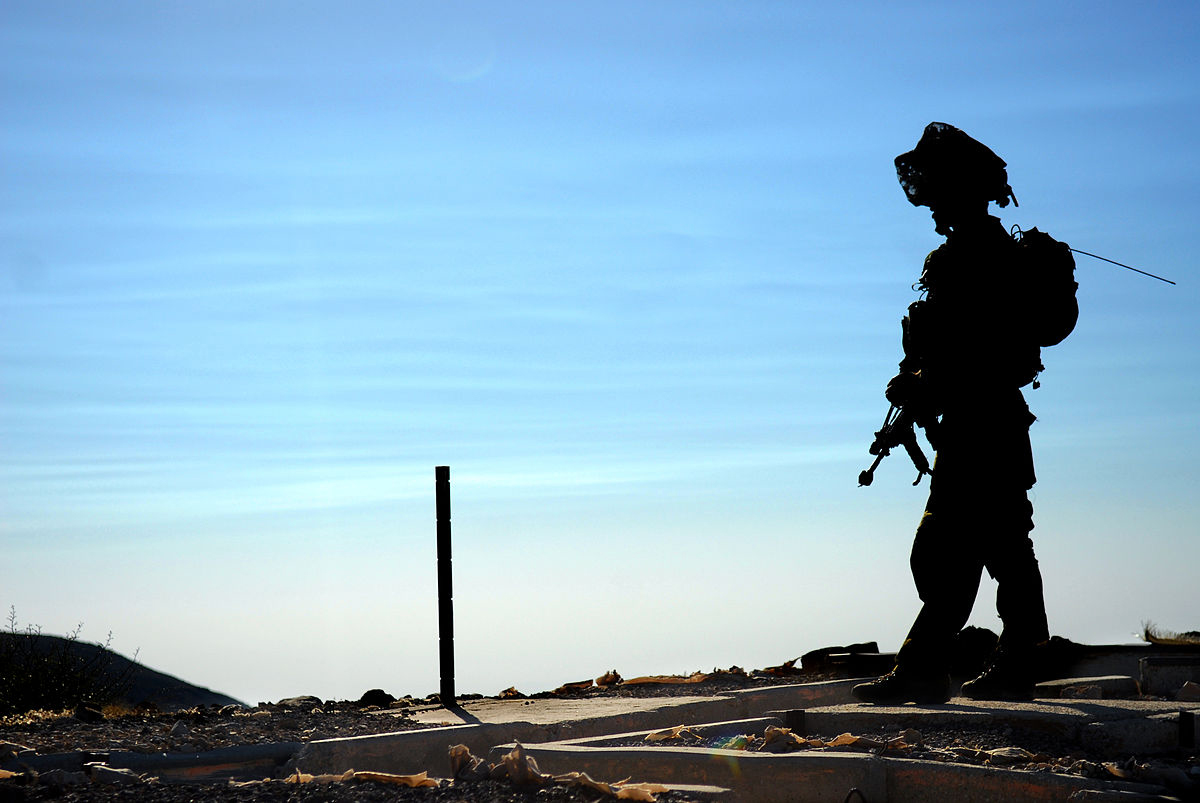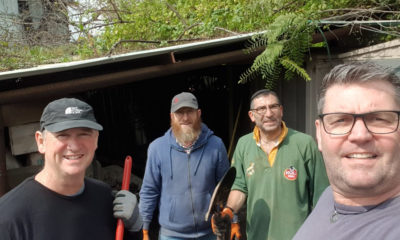
Featured Item

Taking the hardship out of being a lone soldier
Leaving behind the things you take for granted – family, home comforts, and understanding the language – to serve in the army of another country isn’t something many of us would volunteer to do, but for some, it’s a calling.
The youngsters who do this are called “lone soldiers” because they have no close family in the country that they have chosen to defend. David* is a lone soldier from South Africa who made aliyah at the age of 19.
He served in an elite Israel Defense Forces (IDF) combat anti-tank unit for three years. He says he became a lone soldier because of his Zionism and as a way to integrate fully into Israeli society.
“Zionism still exists in the modern age. Whether you’re religious or not, you feel something in Israel that connects everyone,” David says. “And that thing is the army. It’s about playing your part and giving back. Also, in every job interview, every social interaction, the first question is ‘where did you serve in the army?’. So it’s also about integrating, making friends, and being part of Israeli society.”
When he first arrived in Israel, he went to a kibbutz where he learned Hebrew. He was then drafted into the special missile anti-tank unit of the Nahal Brigade. Over three years, he became part of a brotherhood of friends as depicted in television series like Fauda and When Heroes Fly.
“We were in an incredibly tense situation during the 2014 Gaza War, and our training took a year and a half,” he says. “The United States Marines take only six months. We were training for the ‘real deal’.”
While the language barrier and other subtle cultural differences were difficult at times, he was helped by his fellow soldiers, and also had to learn to ask for help.
One of the things he’s most proud of is serving on the Syrian border, securing the safe extraction of injured civilians – mostly children. “Every night we would see them carried across on stretchers with terrifying shrapnel wounds. This went on non-stop for the full four to five months while I was there.”
He says being a lone soldier is “definitely the hardest thing I’ve ever done, because there are so many hidden difficulties that you don’t know about until you’re in it. It’s not just the language and not having family, it’s so many other small things. But it also gives you a brotherhood and a deep understanding of yourself. It changes your life.”
The COVID-19 pandemic has been particularly tough on soldiers as they haven’t been allowed to leave their bases for weeks at a time. Others have had to quarantine at special facilities instead of the comfort of their own homes. “It’s no joke. The organisations that assist lone soldiers really have our backs, and their support is felt by us. Even small things that they give to us feel incredibly supportive. They show us we’re not alone.”
Yahad – United for Israel’s Soldiers is one such organisation that works to make the lives of lone soldiers easier, in gratitude for the sacrifices they make.
“There are more than 6 000 lone soldiers serving in the IDF,” says Yael Kedem Golan, foreign affairs co-ordinator at Yahad. “They come from all over the world to defend Israel and they share a love and concern for Israel and the Jewish people.”
Kedem Golan has a personal connection to South African Jewry as many of her family members made their way there as immigrants from Lithuania. “I recently found out that my grandfather’s cousin used to work for the welfare of Israeli soldiers from South Africa. So I’m doing what he did 50 years ago,” she says.
She says 100% of donations to Yahad go towards the soldiers’ needs. “If there is a need in the field, we can respond immediately, thanks to donations. Because we fall under the defense ministry, all operational costs are covered by it.”
And soldiers’ needs are many. “We especially assist lone soldiers who have no family to depend on in Israel, soldiers who come from families with incomes below the minimum wage, and soldiers who come from sectors of the population that don’t usually join the military, like the haredi.”
The organisation’s flagship project is Warm Homes, which rents and furnishes apartments for lone soldiers. Three or four soldiers occupy these apartments throughout their term of service. “It’s very special for them to have their own room and a place to call home, as they would otherwise stay in a hostel when they’re off duty,” she says.
“Every Friday from 10:00 to 15:00, our volunteers distribute Shabbat meals to lone soldiers, and [before the pandemic] we set them up with host Israeli families for Shabbat, should they desire it. We also assist them with food and other expenses. Donors are kept up to date about how their contribution assists individual soldiers.”
Yahad also offers support to lone soldiers once they have completed their service, “so they don’t just get dropped into civilian life and start at zero”, says Kedem Golan. “We assist with the bureaucratic labyrinth, civilian and military, and help find employment on discharge.
“We also have a programme called Uniform to University, in which we offer a full university scholarship to combat soldiers and lone soldiers on discharge. This gives them a head start academically. They have uprooted themselves to volunteer, or have put their lives at risk for Israel, so we fund a full academic degree in whatever they choose to study. Even if it’s a medical degree, we will fund the full seven years.”
David is grateful to benefit from this particular programme. “I’m excited to be studying, and as a combat soldier, every shekel counts. It’s a huge burden off my shoulders,” he says.
Yahad also establishes recreational facilities or “clubhouses” on bases as a space for soldiers to relax and socialise. And it pays for a free flight home for a lone soldier during their service and ensures that they’re paid for their leave during the time they’re away.
Before the pandemic, it hosted “fun days” and weeks away for lone soldiers and combat soldiers at special army hotels, where they get to relax and boost their morale. But with COVID-19, these army hotels have been turned into quarantine facilities and military hospitals for soldiers needing to isolate or be treated.
Under COVID-19, “Soldiers have been locked down much longer than civilians. Yahad has provided hygiene kits, hospital equipment, ventilators, and ambulances,” she says.
“Some soldiers and their families have been affected economically – for example they may have had a job as a waiter, but have now been retrenched. They’re now totally reliant on the IDF and Yahad to keep their head above water.”
The organisation has “friends of Yahad” branches all over the world, and Kedem Golan hopes to establish a branch in South Africa.
Volunteers of all ages contribute to the organisation in different ways. “Israelis really understand the need. These soldiers do it without thinking twice, so we really have to remember how they’re keeping us safe – not just Israel, but the whole Jewish world. Giving back to them is just a small percentage of what they give to us.”
*Not his real name






